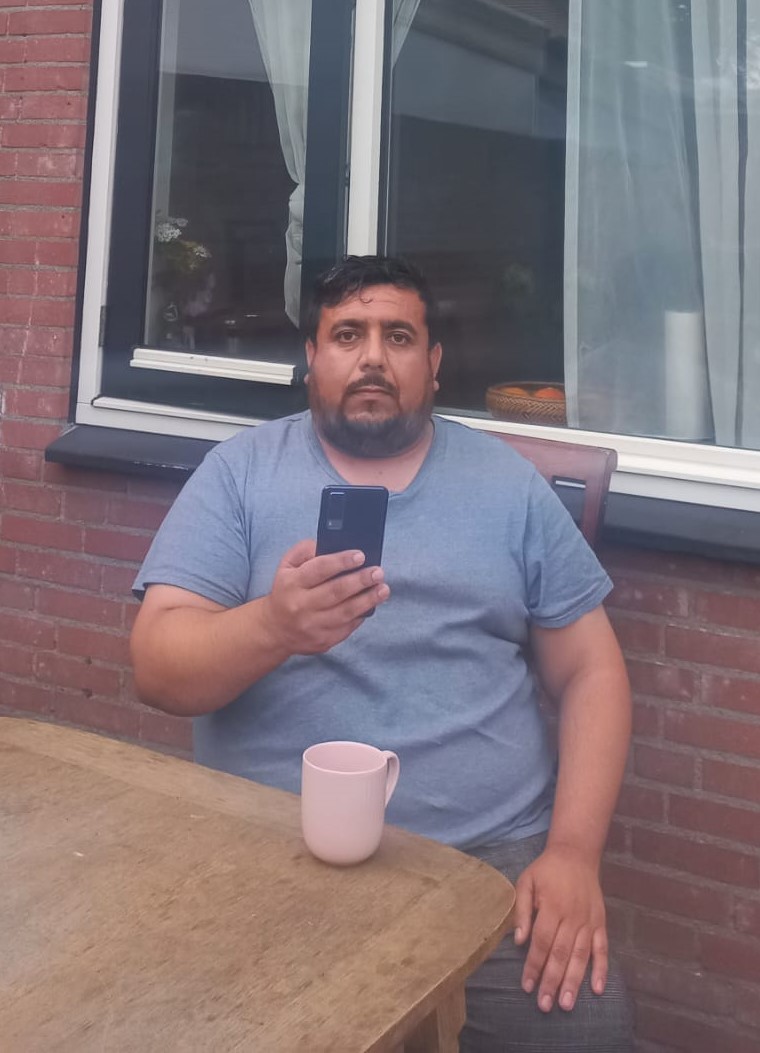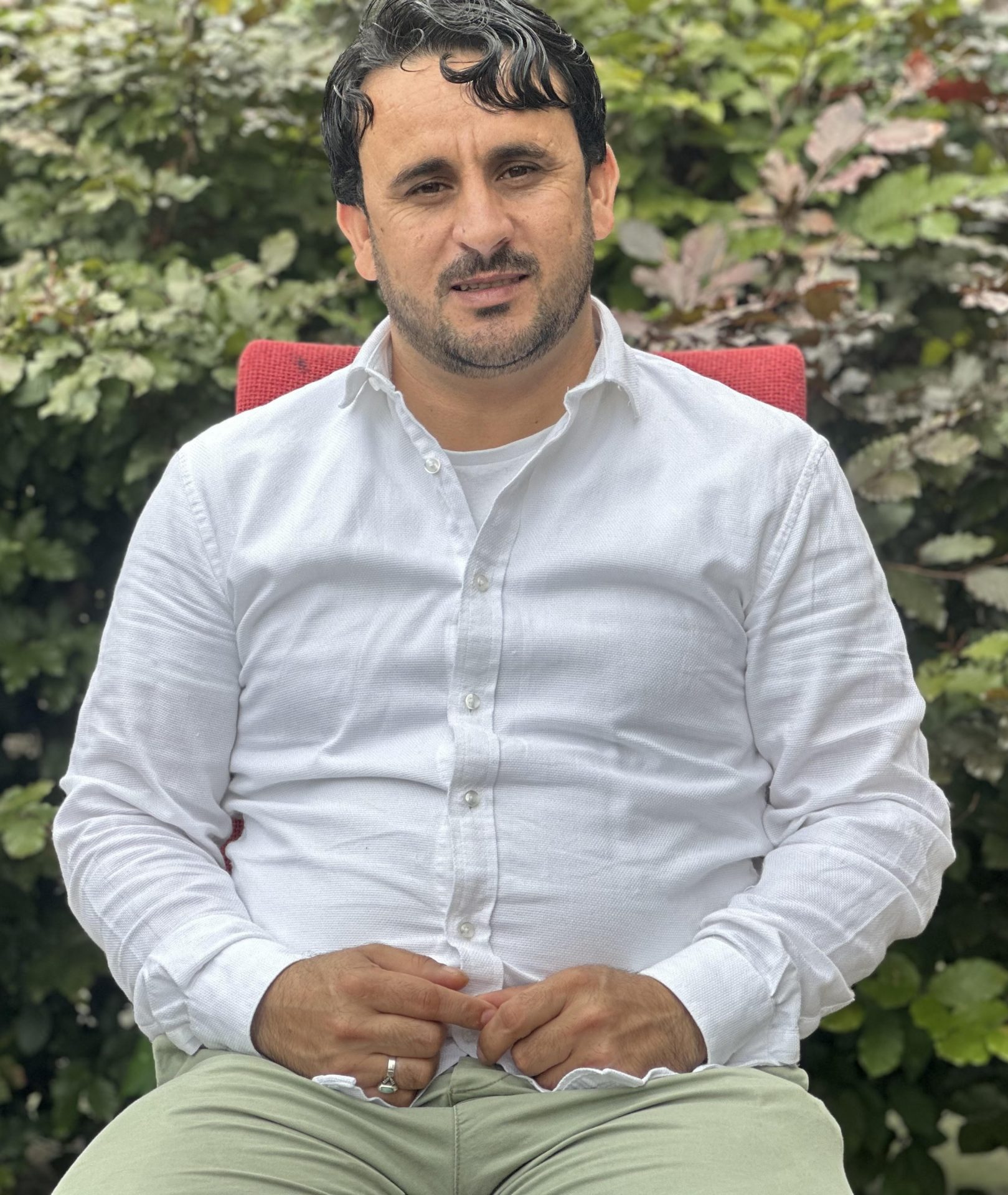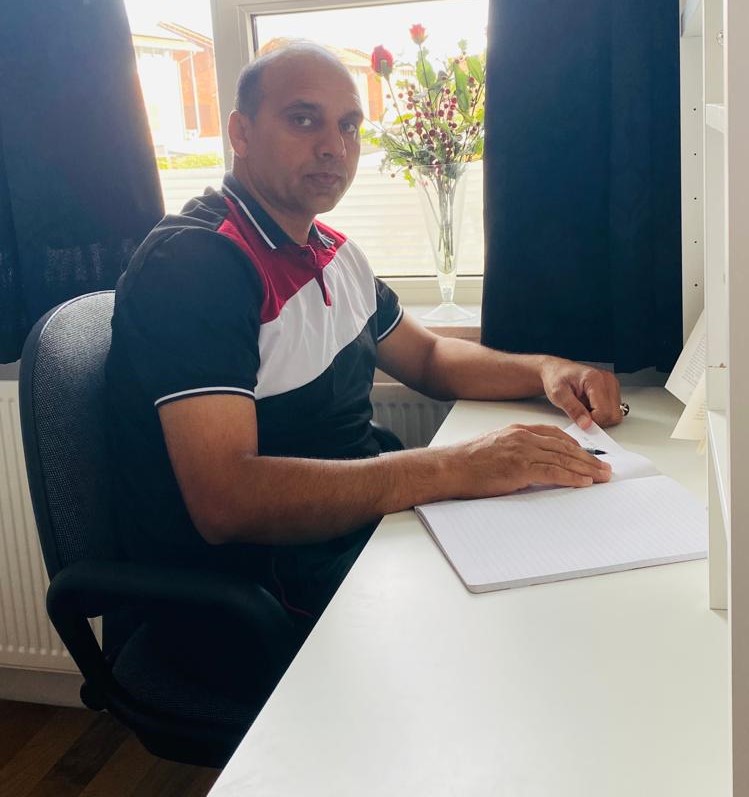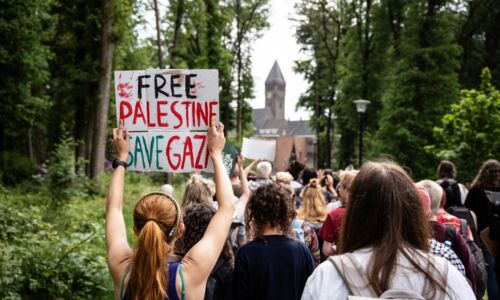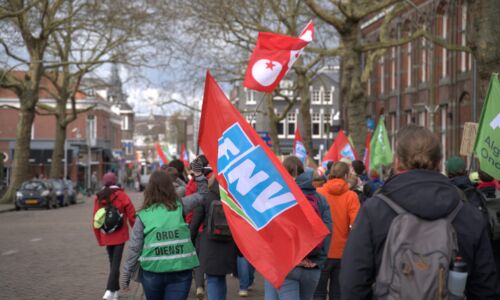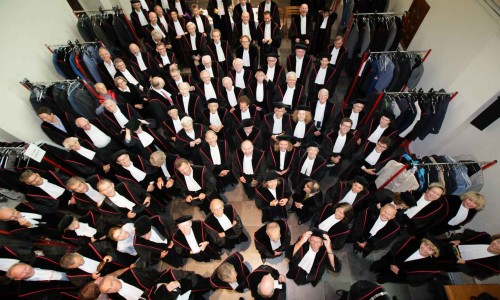After Heumensoord: where are Afghan refugees now?
-
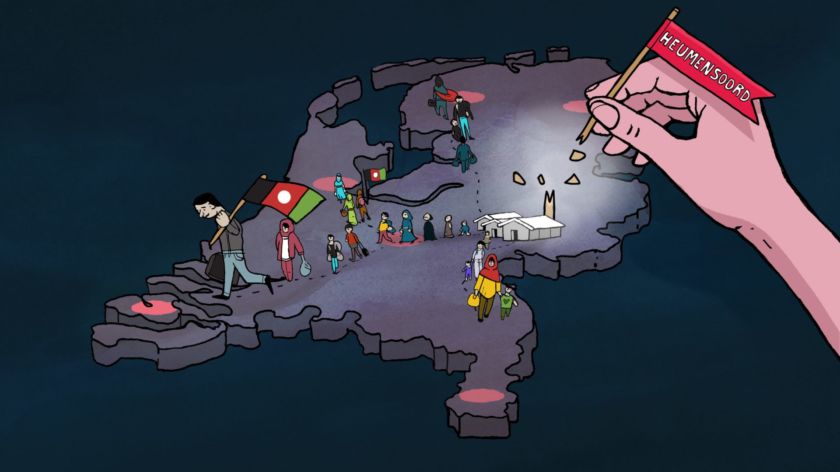 Illustration: Ivana Smudja
Illustration: Ivana Smudja
In January 2022, the last Afghan refugees left the refugee camp Heumensoord that was located close by the university. Almost two years later, Afghan journalist Ghulamullah Habibi interviewed four of them about life after the camp, a look into the future – and what they have left behind. ‘I keep thinking about my family.’
Between August 2021 and January 2022, the refugee camp Heumensoord near Radboud University housed around 1,000 Afghan refugees who had been evacuated following the Taliban coup in their home country. The camp had received national media scrutiny for its bad conditions and was deemed ‘unsuitable for long-term stay’ by the the Netherlands Institute for Human Rights and the National Ombudsman. The last Afghans left Heumensoord in January 2022, moving to camps and, eventually, permanent housing all over the country. Now, more than two years later, they have started building their new lives in the Netherlands.
Abdul Latif Narm
Abdul Latif Narm is from the Kandahar province, Afghanistan. He is 34 years old now living with his seven children and wife in Zundert, Noord-Brabant.
‘From 2007 to 2009, I worked as an interpreter for the Dutch forces in the Uruzgan Province in Afghanistan. So, when the Dutch troops left Afghanistan, I was targeted by the Taliban. Leaving Afghanistan was a long process.
When I got to the Netherlands, my mental health was very bad, my brain was barely functioning. I was worried about how other members of my family – my parents, my brothers and sisters – would move forward with the terror of the Taliban. And my wife was pregnant when we arrived in the Netherlands and struggled a lot, eventually giving birth to our daughter inside the camp.
‘Living in a camp is like being a traveler’
I lived in a room with my sick wife and seven children, which was very difficult. I asked the Centraal Orgaan opvang asielzoekers (COA) for a larger place to live, but we didn’t receive any help from them. After a while, we were transferred to a new camp – Heumensoord in Nijmegen – where thousands of Afghan refugees were living under atrocious conditions. The living conditions were bad and food, sports, healthcare, and other facilities were missing. From Heumensoord, I was moved to AZC Luttelgeest, where I stayed for another 15 months. Five months ago, I moved into my own house with my family.
Living in a camp is like being a traveler. I have spent the last two years in camps and now I start a new life. If I had moved to a stable home sooner, I would have finished my Dutch language lessons earlier, integrated faster into Dutch society, and started working, but now I have to follow language lessons for two or three years before I can go back to work.
The Netherlands and Afghanistan are completely different. If someone is in trouble in Afghanistan, there is a community that helps, it’s a collective effort to support. In the Netherlands, this is different. Everyone is caught up in their agenda, everyone is busy. In the Netherlands, everyone must solve their problems on their own and that’s not easy.’
Taib Afghan
Taib Afghan is 40 years old; he is from Afghanistan and has six children. Between 2008 and 2010, he worked with the Dutch military forces in Uruzgan and now lives in Malden.
‘When I was working with the Dutch forces, the Taliban sent death threats to my parents and asked me to join them, to get away from the slavery of foreign forces. I didn’t do that. So, when all the foreign forces left, I got into a lot of trouble.
I will never forget that the Dutch forces landed at Kabul Airport to help their workers and transfer them from Afghanistan to the Netherlands. My family and I were on the Dutch Foreign Ministry’s evacuation list because I had worked with the Dutch military.
We flew late at night on 23 August 2021 in a US combat plane to Islamabad Airport in Pakistan. It was a difficult journey because there were no seats on the plane. From Islamabad, we flew with another plane and eventually landed at Schiphol Airport in Amsterdam.
For my family and me, everything is new. I don’t speak any international language, I have never visited another country, and I was worried about what it would be like. But it’s true that it is always easy after a hard time. After many difficulties, I am living in a happy and peaceful place with my own house in Malden. And I am very grateful to the Dutch people for their support under these difficult circumstances.
‘For me, my children’s education is a big achievement’
One and half years ago, my wife gave birth to our son at the Radboudumc, while we were still living at the Heumensoord camp. I didn’t want to leave my children alone in the camp, but I also knew that I had to be with my wife at the hospital. Thankfully, I had a lot of friends at the camp who took care of my children, so I could stay with my wife at the hospital.
Since I got here, I got my driving license and I am close to finishing my Dutch language lessons. My daughter got her swimming diploma. My wife is busy with language lessons. And the rest of my children are busy with school. For me, my children’s education is a big achievement. The Taliban banned girls from schools in Afghanistan and collapsed the rights of all women. I am lucky that my family is free from this government and receives free education in the Netherlands.
My foremost goal for the future is to find work. I’m trying to open my own small business, which will be a clothing shop that imports clothes from Turkey and Germany.’
Anna
Anna (pseudonym) is originally from the Panjshir province in Afghanistan. Because of security concerns, she does not want to reveal her real name in the media.
‘I worked as a journalist and interpreter for foreign media in Afghanistan. Right now, two of my brothers and one of my brother’s family are still locked up in Afghanistan. One of my brothers was an Afghan National Army soldier for the last Afghan government. When the Taliban came to power, they took him from his home in Panjshir and shot him.
‘I couldn’t say goodbye to my family’
When I left Afghanistan and travelled to Amsterdam with the help of the Dutch forces, I couldn’t say goodbye to my family. I am still thinking about them all the time. After arriving in the Netherlands, I spent nearly a year in different camps and now live in my own home in Berg en Dal.
My family is living in very difficult conditions under the Taliban and are not able to work. Those who worked for the former government are not given jobs. I have repeatedly submitted documents to the Dutch government about the transfer of my family. But they keep turning them down. They keep telling me that I am not responsible for my family.
Right now, I work as a translator and a social worker, as well as a freelance journalist. But I keep thinking about my family. I haven’t given up on bringing them to the Netherlands yet.’
Zarif Khan
Zarif Khan is from Afghanistan. He is 50 years old and living with his wife and six children in Zeewolde.
‘When we first arrived at Schiphol, it was very cold. The weather in Kabul, from where we had flown to the Netherlands, was hot and we did not have warm clothes when we landed. After spending three months in Heumensoord, I was taken to AZC Leersum in Utrecht, and after one year and eight months of waiting, I was given a home at Zeewolde. Living in a camp is very difficult because it leaves you in a continuous state of mental restlessness, so I was very happy when I could move into my own home.
In Afghanistan, I was working in construction. So, I have a lot of experience in cement flooring, painting houses, carpentry, and electrical installation. However, construction work in the Netherlands is quite different from that in Afghanistan. In Afghanistan, most work is done by hand, whereas in the Netherlands, it involves a lot of machinery.
‘Passing the driving exams was a big first achievement of my new life here’
And because I live away from the market in Zeewolde, it was quite a challenge to get started to fix up my own home here. Some Afghan friends and I bought tools and then carried them with great difficulty back because we didn’t have a car or a driving license.
I started driving theory lessons when I was still at the camp. In Afghanistan, I have been driving for a long time without any traffic rules. So, passing the driving exams was a big first achievement of my new life here. Now, I have a driver’s license and my own car. And I have a better life together with my family.’
